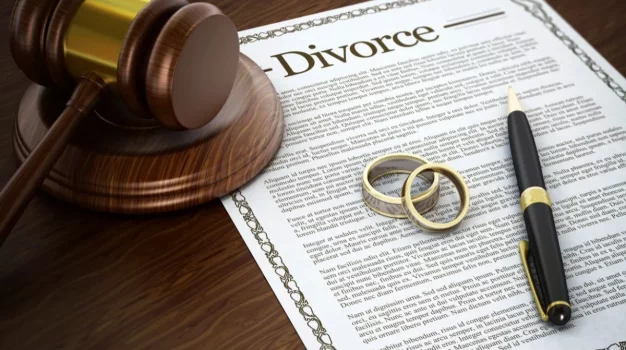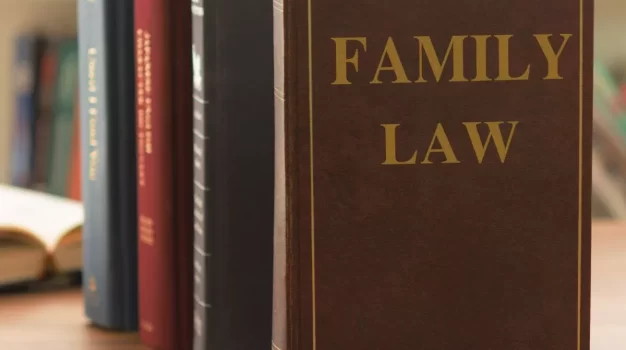Orange County Domestic Violence Lawyer
Some people wrongly assume the term “domestic violence” only involves injury during family fights, and only between spouses — it’s for this reason that some people are victims of domestic violence without even realizing it. A well-versed Orange County domestic violence lawyer like those at the Law Offices of Hollie A. Lemkin can tell you that California law recognizes domestic violence as any willful, harmful touching or threat a person makes against a current or former spouse, cohabitant, fiancé, girlfriend or boyfriend, or parent of their child(ren).

This definition of domestic violence obviously includes being injured, but it also encompasses any forceful action taken against you by a significant other, even if you aren’t injured in the process — for example, shoving, pulling hair or tearing clothes. Any of these actions taken against a significant other can be criminal in California, and if you have been a victim of such domestic violence, you are entitled to protection under the law.
Orange County Domestic Violence Representation
There are many nuances to representing those affected by a domestic abuser, as safety is a major consideration throughout the process. Domestic violence will affect thousands of people across California. All of them deserve to have a strong attorney in their corner to help obtain justice.
For almost 20 years, the Law Offices of Hollie A. Lemkin have worked in family law. We know how to protect victims of domestic violence through the courts. Our firm can also recommend resources to aid in their protection and independence from their abuser. Our team is led by a bar-certified family law specialist, so you can rest assured that our knowledge and capabilities are unmatched.
What Is Domestic Violence?
Domestic violence encompasses a variety of situations. It is characterized by aggressive or violent behavior used by a person in a relationship to gain and/or maintain control and power over the other. Under California law, anyone who lives with or has an intimate or familial relationship with another person can be charged with this offense. Anyone can be a victim of domestic violence, and anyone can be the aggressor in the situation. A crime can be classified as domestic violence if the parties have one of the following relationships:
- Current or former spouses
- Domestic partners
- Relatives by blood or marriage
- Two people who had a child together
- Parent
- Child
- Dating currently or previously
- Living together now or previously
Although it is most commonly presented as physical abuse, domestic violence can also include threats, coercion, and intimidation as part of the pattern of control.
Is There a Statute of Limitations on Domestic Violence in California?
For the majority of crimes, the statute of limitations is two years, though California previously gave victims of domestic violence a statute of limitations of three years to bring forth allegations of domestic abuse. However, the law has since been updated and now allows five years for a victim of abuse to come forward, which provides time for the victim to get to safety before things get worse.
Because domestic violence involves psychological manipulation and puts victims in various situations in which they don’t feel safe coming forward for a number of reasons, the five-year statute of limitations allows for victims to have more time to get out of a situation, hire a domestic violence attorney, and get the necessary support from family, friends, and the courts ahead of filing charges against their abuser.
Leaving the Abusive Situation
Although many people will say that the first step to escaping an abuser is simply leaving, this is far from true in practice. It can be especially dangerous when leaving a domestic violence situation and in the time afterward. The first step is creating a plan for you, your children, and/or your pets to leave safely. Actions that you can take to potentially make leaving safer include:
- Open a bank account in your name or leave money with a trusted friend. Also, collect and hide copies of important documents. These can provide the necessary resources for when you are able to leave.
- Finding the contact information and location of local domestic violence shelters or other safe spaces to stay.
- Protect your new home by locking doors and placing locks on all your windows or other access points. Do not share your location with anyone that you cannot trust to keep that information from your abuser.
Penalties for Domestic Violence
As a wobbler crime under California law, domestic violence can be charged as either a misdemeanor or a felony offense. The charge will depend on the events and details of the case, as well as the defendant’s criminal record. The penalties can include:
- Mandatory minimum jail time
- Payment of fines and/or victim restitution
- Mandatory attendance of domestic violence classes
- Implementation of a restraining order
- Permanent criminal record
- Loss of custody rights
- Loss of California gun rights
- Misdemeanor or felony probation
Less severe consequences may include fines, probation, community service, or court-ordered counseling.
Specifically, an example of a sentence for someone involved in a domestic violence case and convicted of spousal abuse, according to California state law, may endure penalties of up to one year in county jail or anywhere from two years to four years in state prison. In addition to jail or prison time, offenders may also be required to pay fines of up to $6,000.
Hiring a law firm like the Law Offices of Hollie A. Lemkin can help ensure that you get appropriate legal protection, regardless of how your abuser is sentenced. Do not feel guilty about any punishments they receive. Their actions, and their actions alone, have caused these outcomes.
How Do I Get a Domestic Violence Case Dismissed in California?
There are some circumstances under which domestic violence cases can be dropped in California. However, if the charges are criminal, it is not up to the victim to press or drop charges. The District Attorney’s Office prosecutes criminals on behalf of the collective People of the State of California, not on behalf of the victim solely.
Other grounds for dismissal of domestic violence charges would be if the prosecuting attorney can’t produce enough evidence to prosecute, if the victim retracts their testimony, or if key witnesses in the case declined to testify on behalf of the victim. If charges don’t get dropped, the DA might agree to a plea deal to reduce charges from a felony to a misdemeanor, negotiate sentencing, or drop domestic violence charges but keep other charges associated with the case.
Cases may only be closed, and criminal charges can only be dropped by the prosecutor and only with the judge’s approval. It should be noted that domestic violence cases that have been closed can be reopened.
What Is the Family Protection Unit (FPU)?
The Family Protection Unit (FPU) holds the responsibility of prosecuting domestic violence charges. The FPU looks at various factors to determine if charges will be filed as a misdemeanor or a felony. Any crime (e.g., murder, assault, robbery, etc.) can potentially be a domestic violence case as well, depending on the relationship between the offender and the victim.
For criminal domestic violence charges, the FPU, under the advice of the District Attorney’s Office, will review the police report and may consider the wishes of the victim in deciding to drop charges or press charges. If they decide to press charges, they will then determine if the charges will be in the form of a felony or misdemeanor. This depends on the crime committed and the discretion of the FPU. Some other factors that go into this decision are below:
- Whether a weapon was used
- The extent of injury inflicted
- Whether alcohol was involved on either party’s side
- Either party’s criminal history
- History of family violence
- Involvement of children
- Either party’s prior reports of threats or assaults
- Anything else that can be considered as mitigating or pertaining to the case
It is important to note that even if the victim refuses to cooperate with the DA in the case, the DA still has the ability to press charges against the defendant. Additionally, even if the victim declines a criminal restraining order, the DA may still press charges against the abuser. This is because the FPU strives to break the cycle of family violence.
They believe that children who are raised in homes where domestic abuse is prevalent have a greater risk of being violent and aggressive themselves and that these children have low self-esteem, do poorly in school, lack self-control, and are at risk of becoming involved in future criminal activity. Because many inmates claim to have grown up in households where domestic abuse occurred, the FPU aims to break up violent family environments and prevent more damage from being done within these families.
Dependency Court
If a child is believed to be the victim of domestic violence, the state may remove the child from the home. If this happens, shortly after removal, a hearing will be held. A parent will need an attorney, and it is strongly recommended that parents in this situation hire a professional domestic violence attorney to represent them. Otherwise, the court will appoint an attorney for the parent, as well as for the child and the child’s other parent, if required.
Juvenile Court
If a child is the abuser in a case of domestic violence, it is likely the juvenile will be arrested. Juvenile court is very different from criminal court. It is recommended that families in this situation have private legal representation to ensure the juvenile gets the rights to which they are entitled. An experienced juvenile domestic violence lawyer who knows the laws regarding juvenile dependency court (when a child becomes a dependent of the court) and other areas of juvenile law can help families navigate these types of legal processes.
Protective Order vs. Domestic Violence Restraining Order
In some criminal cases, victims are granted a protective order from the criminal court. This is a different order than a domestic violence restraining order, which is granted through family court. Victims can have both and often request multiple orders for various reasons. For instance, if the criminal charges get dropped or the criminal court case is dismissed or closed, the protective order is automatically dropped, as well. This leaves victims vulnerable and unprotected from their domestic violence abuser.
Having a domestic violence restraining order, as well, can provide backup protection should the criminal court protective order expire. Furthermore, a restraining order from a family court can provide additional measures of protection that a protective order associated with a criminal case cannot. For example, a restraining order can provide terms regarding child custody and visitation, while a criminal court order does not provide those protections.
FAQs About Orange County, CA Domestic Violence Law
Can a Restraining Order Grant Me Custody of or Protect Our Pets?
Yes, there are protections for pets in California domestic violence situations. The Request for Domestic Violence Restraining Order (Form DV-100) allows you to ask for the judge to give you custody, care, and control of your pets. You can also ask the judge to specifically order the restrained person not to come near the pets or threaten, take, hide, sell, or harm them in any way.
Can I Extend My Expiring Restraining Order?
Yes, you can extend the duration of your restraining order by asking the court to renew it. You will need to attend a court hearing where you will present evidence and explain to a judge why you still need the order of protection in place. The restrained party has the right to attend this hearing. The presiding judge will make the final decision on whether your restraining order will be extended.
Can I File a Restraining Order While Keeping the Other Person From Knowing My Current Address?
Yes, there is a way to file for an order of protection without the restrained party gaining access to your address. The California Secretary of State runs a program called Safe at Home. It is designed to protect victims of sexual assault, domestic violence, or stalking by providing them with a secure address that can be used for court papers and other important things like banking. This keeps your home address confidential.
Is a Restraining Order Issued in Another State Valid in California?
Restraining orders that meet federal requirements are valid and can be enforced in all 50 states, including California. The federal Violence Against Women Act allows for all valid protection orders to receive full faith and credit in all state and tribal courts. If the restrained individual violates the order in California, they will be subject to California’s penalties for the violation instead of the jurisdiction where the original order was filed.
Can I Drop a Restraining Order After I Have Filed for It?
It depends on where you are in the filing process. If you currently have a temporary restraining order with an upcoming court hearing, you cannot drop the request. However, failing to appear at the hearing will result in the order being dropped. If you have a permanent restraining order in place, you will need to go to court to dismiss the case or change the restraining order.
Contact Our Domestic Violence Lawyers in Orange County
The team at the Law Offices of Hollie A. Lemkin has served the families of Orange County for almost 20 years in family law. We are experts in our field, and we can work through your case to find merit-based solutions that ensure the best possible outcomes for your case. We are deeply familiar with how emotionally stressful domestic violence cases can be. Our firm strives to be a knowledgeable, trustworthy resource for your family law needs. If you are ready to hire an attorney to represent you in court, contact our Orange County domestic violence lawyer at the Law Offices of Hollie A. Lemkin. We have a team of experienced legal professionals who are waiting to help you.

About Lemkin Law
Hollie Lemkin is the daughter, granddaughter, sister, and aunt to lawyers. She knows that Family Law is about more than winning. It is about inflicting the least amount of collateral damage on your children and putting your family in the most advisable possible position moving forward. A passionate trial lawyer, she will never back down from a fight.
She is exactly the attorney you want in your corner.
Call today to speak with Hollie A. Lemkin to discuss your questions & issues!
Family Law Blog
Orange County Divorce Rate – Latest Statistics [Updated 2024]
California divorces follow a general timeline but each divorce is unique.
Family Law Terminology – Glossary of Family Law Terms (2024)
California divorces follow a general timeline but each divorce is unique.



